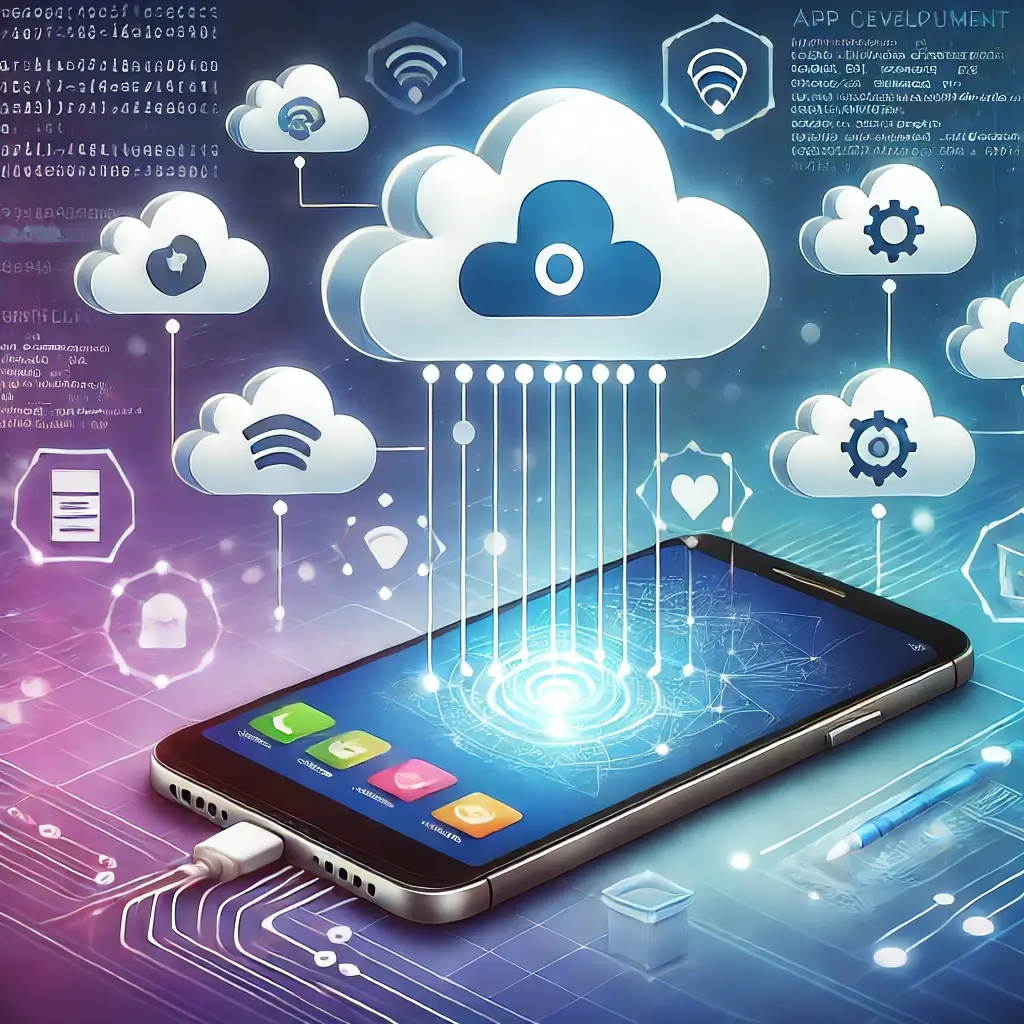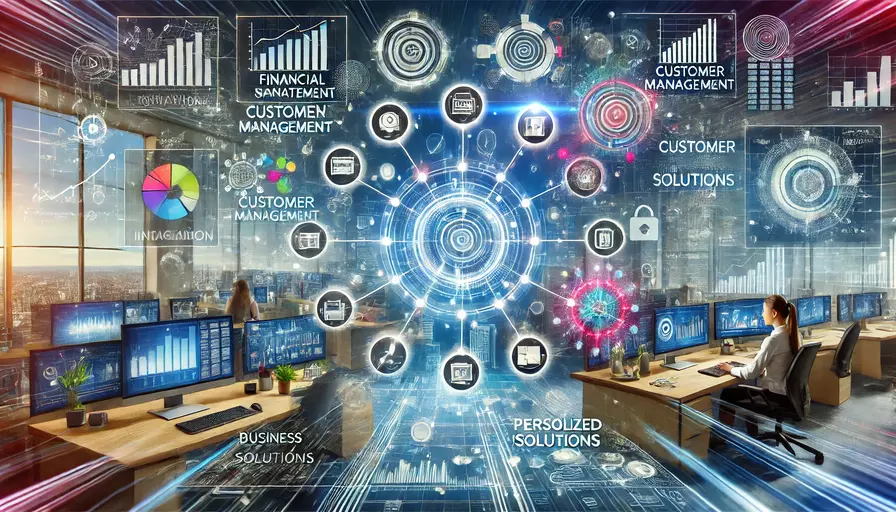Introduction
Businesses across the world are experiencing a whole new paradigm shift in industries as AI slowly begins to alter the traditional way of doing things. Each business is trying to work out how best to adapt in the fast-changing landscape, and HR must evolve as well. By integrating technology in ways that improves efficiency and decision-making. AI already transforms recruitment, employee engagement, performance management, and workforce planning. With AI-powered innovative platforms, AI has the ability to take the HR function to the next level. Which would transform the companies’ ways of attracting, assessing, and retaining talent. This blog will explore how AI is changing the traditional working mechanism of HR, focusing on its real-world uses and talk about how the application of AI streamline and enhance the process of HR.
The Role of AI in HR
AI is completely changing how HR operates by enabling businesses to use a huge amount of data to make informed choices regarding their employees needs and performance management procedures. In the past years HR duties such as, recruitment, employee onboarding, and performance management have been carried out through manual methods. Such methods are prone to inefficiencies and errors made by humans. AI is revolutionizing this process by incorporating sophisticated analytics tools, automation features, and cognitive technologies into all HR functions.
Key ways AI is transforming HR include:
- Automation of Repetitive Tasks: The use of AI powered software enables the automation of administrative duties, like organizing resumes and coordinating interviews and also handling payroll tasks efficiently. Thus, it leaves more space for the HRs to dedicate their time on the strategic responsibilities. Like enhancing employee engagement and fostering organizational growth.
- Predictive Analytics for Workforce Management: In the realm of managing a workforce effectively lies the analytics tools. These tools that forecast employee turnover, identify emerging work trends, and develop strategies to prevent talent loss. So the HR teams can make data-backed decisions for their company.
- Personalized Employee Experiences: Artificial Intelligence can tailor HR services according to the individual needs of the employees. From personalized learning initiatives to customized career growth paths that enhance overall employee satisfaction and engagement, within organizations.
AI-Powered Recruitment
Perhaps the most profound effect AI has caused in HR is that of hiring or recruitment procedure. Conventionally, making a proper hire included sifting through hundreds of resumes, going through hours of interviews, and subjective judgment. So AI saved a huge amount of time and resources here. The AI-driven recruitment tools ensures that the organizations find the right talent in an efficient and fair way.
- Smart Resume Screening: AI algorithms can perform an in-depth screening of resumes for specific skills, experiences, and qualifications mentioned within the specific job descriptions. This reduces the amount of manual effort that HR teams would invest in candidate screening greatly. And it makes sure that only qualified candidates are passed on to the next steps in hiring.
- Unbiased Hiring: While recruiting, one of the biggest challenge is overcoming unconscious bias. AI tools can be programmed such that it will focus entirely on data like the skills and qualifications an individual possesses while being blind to everything that may lead them to biased, partial decisions on the grounds of gender, race, or ethnicity. This helps a company to get a diverse and inclusive workforce. Which helps improve team productivity and innovation according to studies.
- AI-Powered Video Interviews: Many AI platforms offer automated video interviews that can automatically score a candidates’ verbal and non-verbal responses. An AI can assess soft skills like communication, emotional intelligence, and cultural fit. These can be analyzed by their facial expressions, tone of voice, and words chosen. This can help HR teams identify the best fit so that the work gets done appropriately.
AI in Employee Management and Engagement
AI’s role in HR does not end with the hiring of the right candidates. These days, AI-powered tools are increasingly employed to manage employees for a better performance, and engagement. By capitalizing on AI, HR teams can understand their workforce better and hence, plan accordingly for a productive, involved, and satisfied work environment.
- Performance Evaluation and Continuous Feedback: Over time, traditional performance reviews have been replaced by AI-based systems where immediate feedback is provided to employees rather than annual reports. AI is able to analyze employee performance, track key metrics, and provide actionable insights to not only the employees but also to the managers. This aids in constant improvement within the employees’ job role.
- AI-Powered Employee Engagement Surveys: AI tools are able to analyze employee sentiment by analyzing survey responses, emails, and other communications that show the emotions. Using that information, AI can help HR interpret the overall workplace mood and suggest morale-enhancing activities, as well as tactics to minimize employee turnovers.
- Personalized Learning and Development Programs: General learning programs are now becoming a thing of the past. AI is making it possible for organizations to offer customized learning journeys to each of their employees, based on the development of skills relevant to career goals and performance data. In this regard, employees will keep developing those skills they will always need to pursue excellence both personally and professionally.
Challenges and Ethical Considerations in AI-Driven HR
AI certainly has a number of advantages, but still there are several challenges and issues of an ethical nature that the organizations need to deal with while integrating AI into the HR.
- Algorithm Bias in AI: Even as AI has the ability to reduce biases in hiring, it is only as unbiased as the data on which it was trained. So, if there’s any historical data containing biased hiring practices, AI would continue that practice. HR teams have to ensure that they audit their tools and algorithms in AI for removal of any form of biases.
- Employee Privacy and Data Security: AI systems collect enormous volumes of data about employees, ranging from performance on the job to personal behaviors. Ensuring that data collection is applied in an ethical way and that the privacy of the employees is well protected is critical. Organizations need to establish guidelines and security protocols concerning the use of data clearly.
- Adaptation and Skill Gaps in HR: With AI becoming an integral part of HR, it also means professionals must understand how to work effectively with these new technologies. This might require trainings so that the HR teams are well-equipped in managing the AI tools and using their fullest capabilities properly.
The Future of AI in HR
While AI is growing with each passing day, HR applications are going to multiply and make workplaces more efficient, driven by data, and employee-oriented. So, here we go with what we may expect to see in the near future:
- AI-Driven Workforce Planning: AI-driven workforce planning involves enabling HR teams to predict the workforce requirements of the future and hence make correct decisions on their recruitment strategy. AI facilitates the identification of the best practices for talent acquisition and retention with maximum precision while considering the market trends, employee behavior, and required skill sets.
- Enhanced Diversity and Inclusion: AI tools will be further developed that are specifically designed to assist in improving efforts on diversity and inclusion. This tool can help the HR team identify the company’s lack of diversity in a particular area and can develop targeted recruitment strategies that provide an inclusive environment. AI can help in observing workplace culture and suggests guidelines so that any act of discrimination could be avoided, and opportunities are provided to every employee without any discrimination.
- AI-Powered Employee Wellbeing Programs: Employee wellbeing is something taken as a priority in many organizations today. AI uses personalized wellness programs through integration with various data sources, including wearable devices, employee feedback, and trends in behavior. It suggests activities and initiatives regarding physical and mental health.
- Seamless Integration of AI with Other HR Technologies: AI will continue to be integrated with other platforms such as payroll, benefits administration, and performance management in HR technologies. Frictionless integration means creating an end-to-end ecosystem in HR where data actually flows across systems with much ease and makes decision-making and operational efficiency effective across all boards.
- AI-Powered Leadership Development: The identification and development of future leaders are one of the big challenges for HR. It can be assisted through AI by analyzing performance, personality traits, and potential, hence making it easy for the HR teams to identify those who have the seeds of leadership. Then AI-driven leadership development programs give personalized insight to help such people grow into a leader.
A real world example
Sajoki
Sajoki‘s AI-driven platform revolutionizes HR with an all-rounded approach to talent management. Here’s how it helps:
- Holistic Talent Acquisition: Sajoki assesses candidates not only on qualifications but also on personality traits, soft skills, and cultural fit, helping HR hire people who align with the company values and long-term goals.
- Predictive Analytics: Sajoki’s predictive tools will let the HR teams estimate future performance and potential of workers to make informed decisions on talent development with reduced employee turnover.
- Cultural Fit: Sajoki makes sure the personality profiles ensure that any new recruits are fitting well in your company culture. This reduces hiring mistakes and allows a better team dynamic.
- Data-Driven HR: Sajoki supports your HR teams to drive data-driven insights right from hiring to performance evaluation for reinventing your HR strategies.
- Employee Development: Besides hiring, Sajoki supports continuous employee engagement through suggested focused learning and development initiatives required for improved performance, thereby strengthening career growth and retention.
Sajoki and the Future of HR
Sajoki will change the face of HR by bringing AI-powered insights into every single function of talent management. Here’s how:
- Efficient Recruitment: By automating personality assessments and matching candidates to their roles, Sajoki reduces time to hire and cultural fit.
- Enhanced Decision-Making: Backed by the data analytics of the platform, HR teams are equipped with highly accurate insights into the competencies of candidates and employees for better hiring, promotion, and team placement decisions.
- Personalized Development: It helps them in having tailored development plans by identifying the areas of strengths and weaknesses of the employees, thus bringing about more effective training and career growth.
- Improved Retention: Emphasis on long-term compatibility of employees and roles reduces turnover and develops a more engaged workforce.
Sajoki’s approach will help HR departments become proactive, efficient, and in tune with the needs of the workforce for the future.
Conclusion
The future of HR lies in embracing AI that leads the way to changing the traditional processes into data-driven, efficient, and human-centric processes. With leveraging AI, the HR departments can help their organizations with enhanced recruitment, bring in bias-free decisions, promote diversity, lift employee engagement, and contribute to organizational success. Leading this transformation could be Sajoki, the AI-powered platform far beyond the concept of HR tools. Since it focuses on personality profiling, skill matching, predictive analytics, and the creation of personalized experiences for employees, it could help HR to build a smarter, more efficient, and inclusive workplace.
As we move forward into the digital era of work, the HR professionals who can properly work with the adoption of AI tools, shall be at an advantage in trying to meet the challenges of tomorrow. They could not only create workplaces that are productive, but also make it more fulfilling for the employees.



